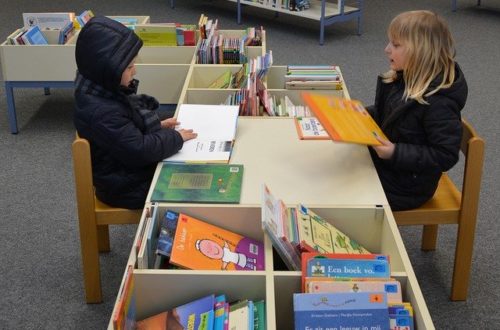“In the simplest terms “Whole Language” is a method of teaching children to read by recognizing words as whole pieces of language. Proponents of the Whole Language philosophy believe that language should not be broken down into letters and combinations of letters and “decoded.” Instead, they believe that language is a complete system of making meaning, with words functioning in relation to each other in context.’
Dr. Monica Bomengen
I planned a different column to begin with, but this column, the one I wanted to write, would not leave me alone. I had a week in which thoughts about this topic seemed to permeate my waking mind. So here goes. If you are a parent you may or may not be aware of the lengthy controversy over different methods to teach reading. The “big two” are phonics and Whole Language. In a phonics program students are explicitly taught the various sounds that English consonants and vowels make, and as they learn to read they are given “controlled text” to read. This means that they are given text that is composed of the sounds they have already learned, but not sounds that have not yet been introduced. As noted above, in Whole Language instruction words are NOT broken down, they are learned whole. “Children are natural readers,” is a phrase that Whole Language supporters will sometimes use.
There is a wealth of information on the problems that are created by using Whole Language instead of phonics to teach early readers. In fact, some of the founders of the Whole Language approach later recanted, saying they never thought it would be used to teach new readers. I often meet children who have been taught to guess, or taught to use “context clues,” or to recall their word wall words instead of being able to decode using letters and sounds. This past week I met a young man who is entering the 8th grade but cannot decode at all. His reading is hesitant and slow and he cannot handle novel words at all. He is such a hard worker that he has attained all A’s and B’s, but his skills are nowhere near what he will need to be successful in high school. Fortunately, thanks to many years of research in reading, we know exactly what to do to help these children, and have the tools to move them to become efficient and fluent readers. It is not always easy, but it is always possible.
Fortunately in Hingham a phonics reading program has replaced Whole Language; however, it still appears that many students get a small amount of phonics and no phonemic awareness at school. Other towns on the South Shore have not yet made the switch to phonics, despite all of the research that indicates phonics is an essential building block of reading. Moreover, most elementary teachers now teaching were trained in Whole Language—and are sometimes resistant to changing their approach to phonics, which they consider limiting.
However what we have been discovering in the past year is new, and it is a hidden and sometimes extremely damaging long-term consequence of Whole Language. Some students, usually very rapid learners, are able to learn by Whole Language alone. They memorize every word! And SOME of the students who are able to do this simply go on, memorizing every word and doing extremely well in school for many years. Over the years we have seen quite a few students who have done very well through Whole Language alone—often reading several years above grade level. They seemed to be the exceptions, and to have mastered phonics without being explicitly taught.
We’ve got a lot of five year olds who know all the letters of the alphabet, who know quite a few of the sounds, if not all of the sounds, and they’re ready to go. They have the building blocks. And because they have them and they move on under any cockamamie approach, a lot of people think it’s the cockamamie approach that’s teaching them to read. That’s how a lot of this philosophy and belief gets situated.
Dr. G. Reid Lyon, in an interview on reading. Dr. Lyon is perhaps the world’s leading expert on reading development.
The fact that some kids are able to read perfectly well without learning explicit phonics is already understood. They HAVE learned phonics at some point along the way, but in a different way. The cockamamie approach didn’t teach reading, but it appeared to. It has worked for these students—until something changes and it doesn’t any more.
What has happened seems to be that some students have memorized every word they know—they have not mastered phonics, and they cannot hear sounds correctly. Finally they are simply overwhelmed by the quantity of material they must access from memory and cannot add any more. Their reading comprehension is the first major casualty—and their confidence goes soon after. Next time I will give you examples of what can happen.




